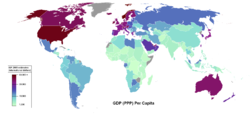The topic of this article may not meet Wikipedia's notability guideline for academics .(November 2015) |
Shatakshee Dhongde | |
|---|---|
| Born | Shatakshee Ramesh Dhongde |
| Nationality | Indian |
| Academic background | |
| Alma mater | University of California, Riverside |
| Academic work | |
| Discipline | Microeconomic theory and development economics |
| Institutions | Ivan Allen College of Liberal Arts,Georgia Institute of Technology |
| Awards | University of California,Riverside Graduate Research Award The Nancy and Richard Ruggles Research Prize |
| Notes | |
Thesis Essays on growth,income distribution and poverty. (2005) | |
Shatakshee Ramesh Dhongde [1] is an associate professor at the School of Economics,Ivan Allen College of Liberal Arts,Georgia Institute of Technology. She has provided research papers to the several institutions including the International Monetary Fund and the World Institute for Development Economics Research (WIDER). Her work has also appeared in several academic journals including World Development .
Contents
- Education
- Career
- Awards
- Bibliography
- Thesis
- Chapters in books
- Journal articles
- Papers
- Videos
- References
- External links
Dhongde's research interests are in microeconomics and development economics and include inequality,growth,trade liberalization,poverty,and segregation. [2]
